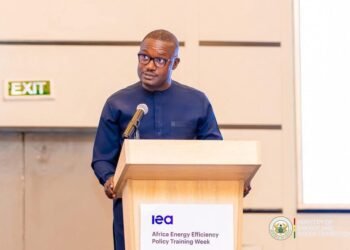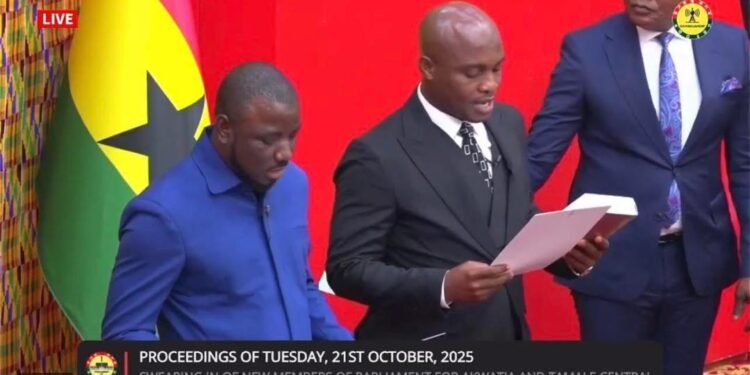An Applied Economist and Policy Analyst Alfred Appiah has shed light on the deep-seated issues plaguing the Electricity Company of Ghana (ECG) and the broader energy sector in a recent analysis that exposes inefficiencies, opaque dealings, and unfulfilled government promises.
A straightforward analogy starkly illustrates the ECG’s financial woes. Mr Alfred pointed out that the utility company purchases power worth 100 cedis but loses 30 cedis before the electricity even reaches consumers, adding that from the 70 cedis of electricity sold, ECG manages to collect only 50 cedis.
“Out of the 50 cedis collected, third-party companies managing billing and collections take a cut. Since ECG buys power in dollars, the remaining amount must be converted to pay power generators. It has been alleged that it has an opaque deal with a Ghanaian bank for buying dollars. CSOs have sued over this.”
Alfred Appiah, an Applied Economist, Data and Policy Analyst
The Electricity Company of Ghana’s challenges do not end with inefficiencies in distribution and collection. In what Alfred Appiah described as a short-sighted measure, the government required ECG to allocate part of its limited collections for the purchase of liquid fuel to mitigate dumsor, particularly during election year.
According to him, this diversion further undermines ECG’s ability to pay power generators, leading to a vicious cycle of unpaid debts and worsening energy supply.
The ESLA Conundrum
Moreover, Alfred Appiah argued that the government’s inability to adequately address the energy sector’s financial crisis adds another layer of complexity to the country’s power distribution company.
He disclosed that when the Akufo-Addo administration assumed office in 2017, it claimed to have inherited a $2.3 billion energy sector legacy debt.
Alfred Appiah noted that between 2017 and 2023, ESLA levies generated an impressive $5.5 billion, with collections from 2017 to 2020 alone sufficient to clear the legacy debts, however, the debts persist.
“Government in 2017 said it was issuing bonds collateralized against the energy debt reduction levy component of ESLA to clear debt in the energy sector. Yet we are still talking about legacy debts today. Those bonds became part of the domestic debt exchange program.”
Alfred Appiah, an Applied Economist, Data and Policy Analyst
According to him, the challenges extend beyond ECG, asserting that under the Akufo-Addo and Bawumia administration, Ghana’s energy sector has weakened across the board.

He pointed out that distribution and collection losses at ECG have worsened, and debts owed to power generators have escalated, raising the specter of another power crisis.
Additionally, Alfred Appiah revealed that the upstream oil sector has not been spared either with a declining oil production and reduced investments becoming the norm, as major industry players pull out of Ghana, citing policy inconsistencies.
According to him, Ghana’s neighboring countries have become more attractive investment destinations, exacerbating Ghana’s energy woes.
For ordinary Ghanaians, the impact is palpable. Alfred Appiah highlighted the irony of consumers continuously paying levies intended to stabilize and improve the energy sector, only to witness declining performance and persistent power crises.
The levies, originally designed to be temporary, have become a long-term financial burden with little accountability for their intended purpose.
Alfred Appiah’s analysis painted a grim picture of an energy sector in disarray, weighed down by mismanagement, opaque practices, and broken promises.
His call to action underscores the urgency for reforms that address inefficiencies, ensure transparency, and prioritize investments in both upstream and downstream energy operations.























